Taking the step to resign from a job can often feel daunting, especially when mental health is the underlying reason. It's vital to prioritize your well-being, and drafting a thoughtful resignation letter can help you move on with grace and clarity. In this guide, we'll explore how to effectively communicate your decision while remaining professional and respectful. Join us as we provide a comprehensive template that you can tailor to your unique situation, ensuring your voice is heard.

Professional and respectful tone
Resignation due to mental health concerns can be a difficult but necessary decision for personal well-being. Mental health, often overlooked in the workplace, demands attention and prioritization. Employees, including those in high-stress environments like corporate settings, may experience burnout, anxiety, or depression, necessitating a break. A professional and respectful resignation ensures clarity and maintains relationships with colleagues. Providing notice, usually two weeks, allows for a smooth transition. Clear communication about mental health reasons, while maintaining privacy, encourages employers to foster supportive work environments. Acknowledging support received during employment shows gratitude, paving the way for potential future opportunities.
Clear statement of resignation
Resigning from a position can be a significant step towards prioritizing mental well-being. It is essential to communicate the decision clearly. A resignation letter should include the effective date of departure alongside a brief mention of mental health as a reason, without disclosing personal details. Acknowledgment of the organization and positive experiences, if applicable, can also convey professionalism. Remember to express gratitude for support received during employment, ensuring the tone remains respectful and considerate. This approach maintains relationships while emphasizing the importance of mental health in the decision-making process.
Acknowledgment of mental health as the reason
Experiencing burnout and chronic stress affects overall well-being and job performance, necessitating a break from professional responsibilities. Mental health concerns often manifest in various ways, including anxiety, depression, and fatigue, impacting daily life and work productivity. Seeking support through therapy or counseling at local facilities can provide necessary coping strategies. Prioritizing mental health has become essential in workplaces across various sectors, including technology and healthcare. Taking a step back allows individuals to focus on recovery, ensuring that once returning to work, they can contribute effectively and maintain a healthy work-life balance.
Gratitude for opportunities and experiences
Resignation due to mental health reasons serves as an important personal decision reflecting one's well-being. Prior experiences within an organization can significantly shape professional growth and identity. Opportunities for skill enhancement, networking events, and project involvement illustrate valuable contributions. Gratitude towards supportive colleagues and mentors fosters lasting professional relationships. Prioritizing mental health leads to a balanced journey, prompting reflection on past achievements while looking forward to new paths. The workplace, dense with memories and challenges, often becomes a pivotal chapter in an individual's career narrative.
Offer to assist during transition period
Resignation from a position due to mental health reasons can be both a difficult and necessary decision for many individuals seeking to prioritize their well-being. Announcing a resignation often involves formal communication, such as a letter, which ensures that the employer is informed in a professional manner. It's common to express gratitude for previous opportunities and offer support for a smooth transition, recognizing the importance of maintaining positive relationships in the workplace. Such a transition can include providing training for successors or wrapping up outstanding projects. Consideration of workplace dynamics and potential follow-up communications can help to foster goodwill and understanding during this significant change. Mental health advocacy emphasizes the importance of prioritizing self-care and seeking appropriate support during these challenging times.

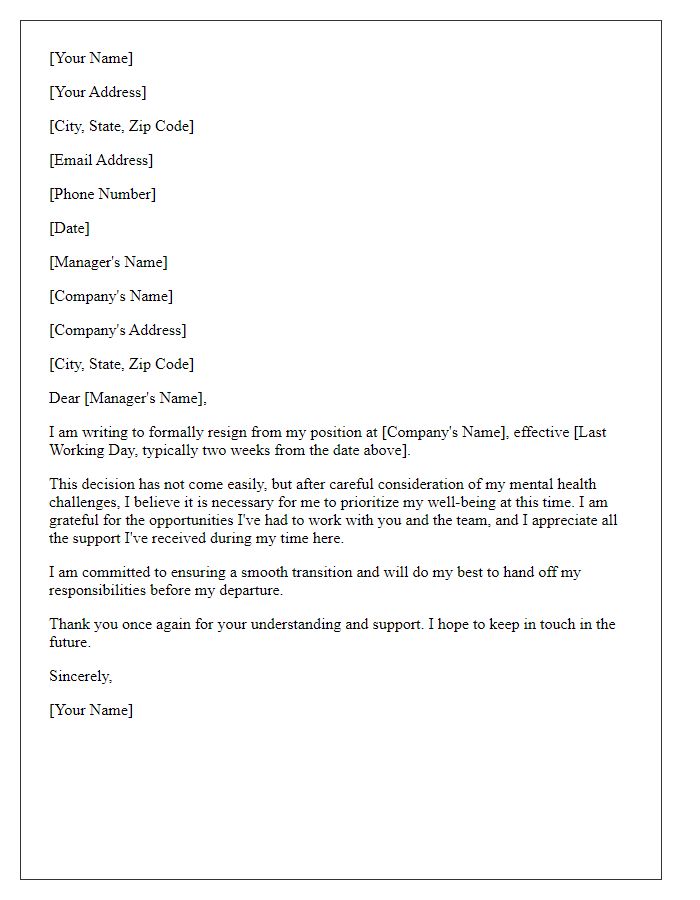
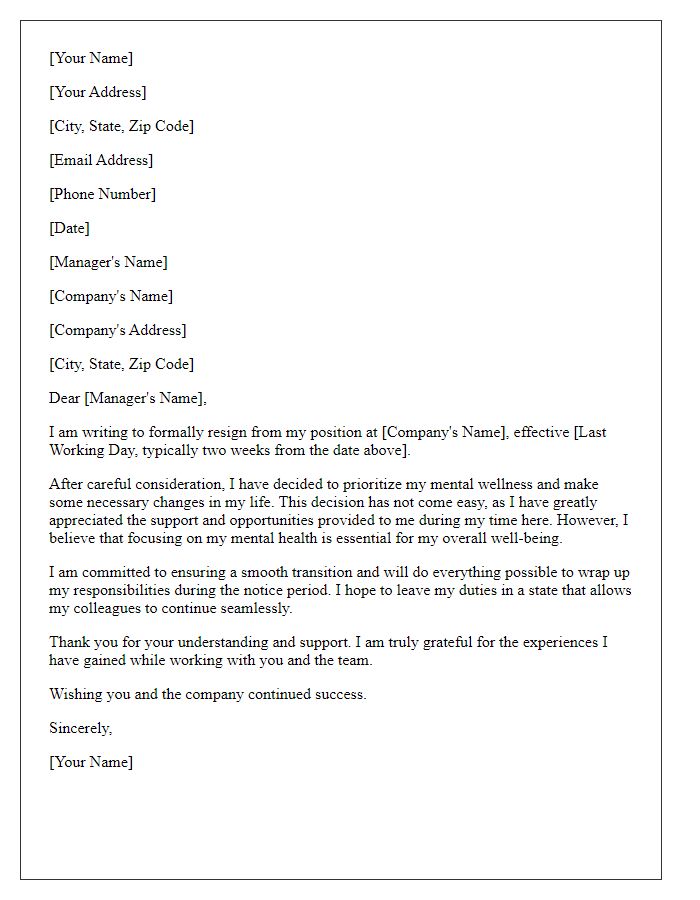
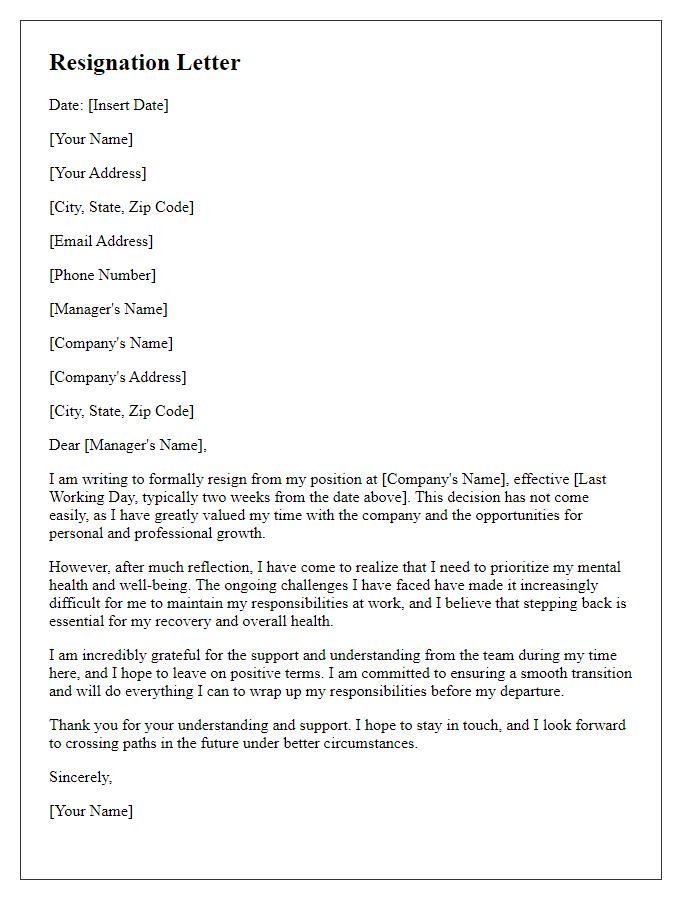
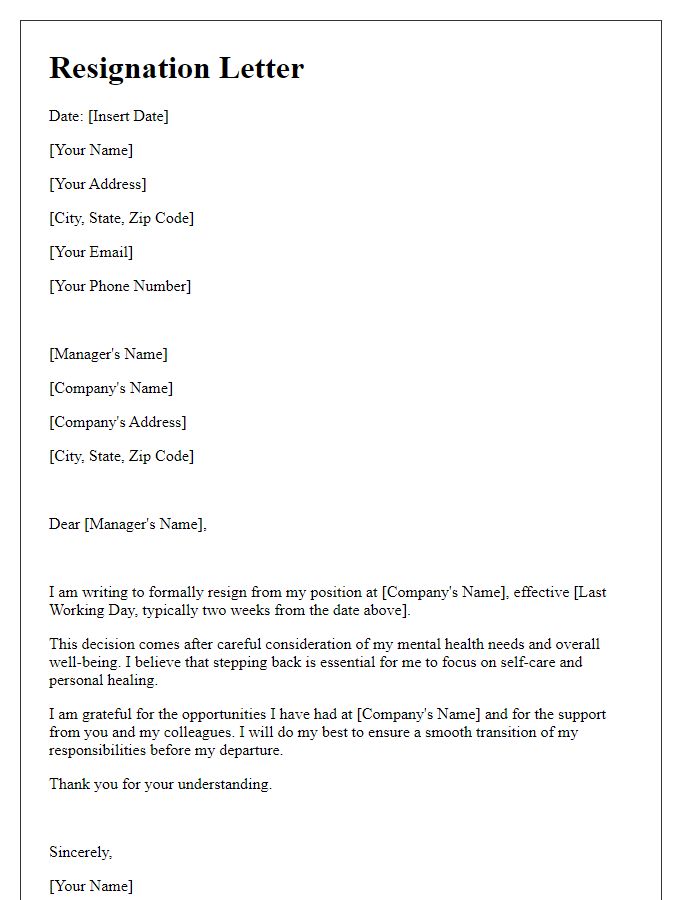
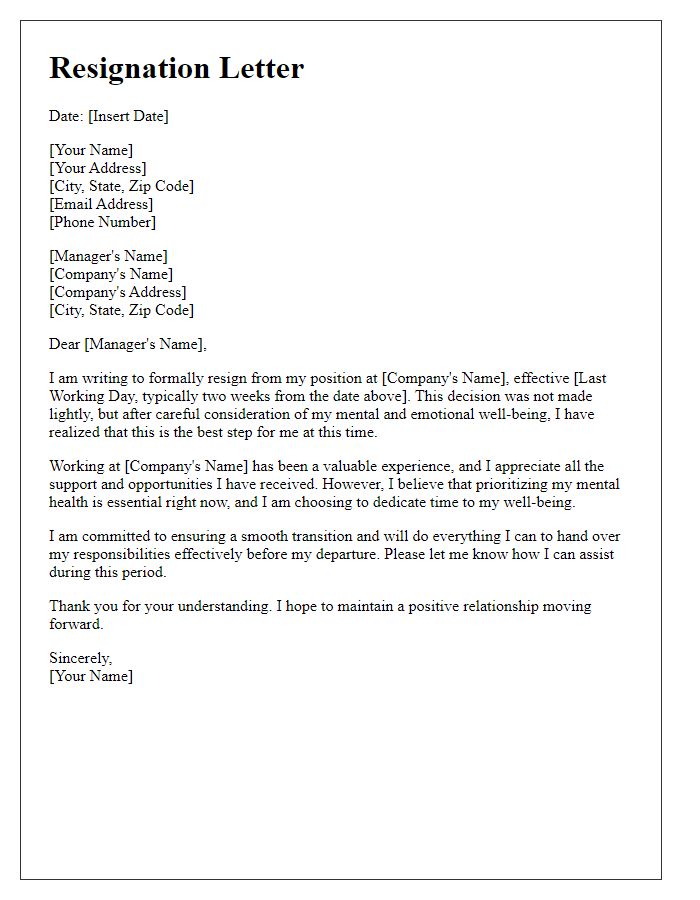
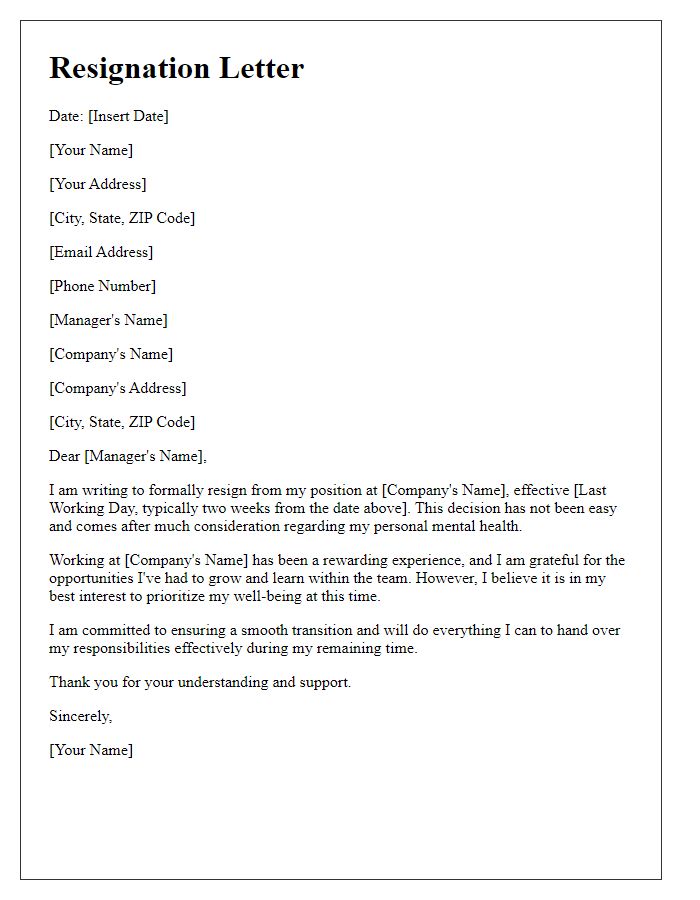
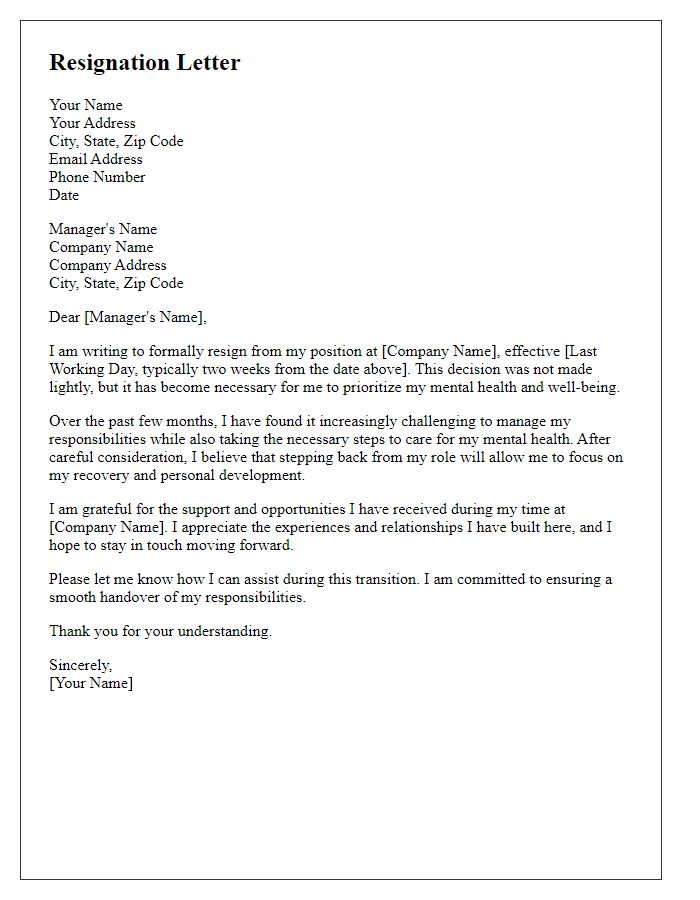
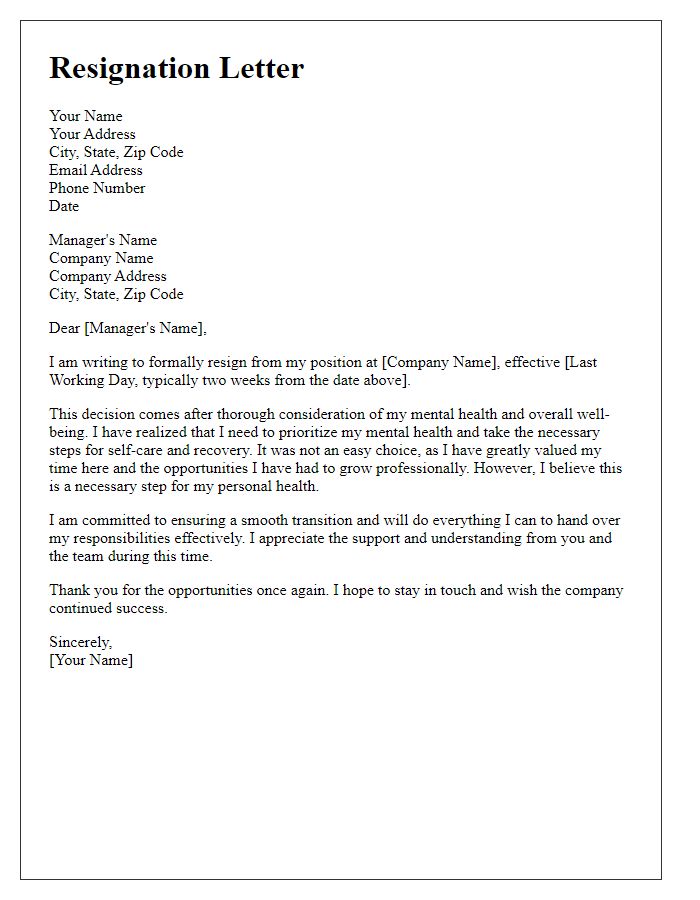
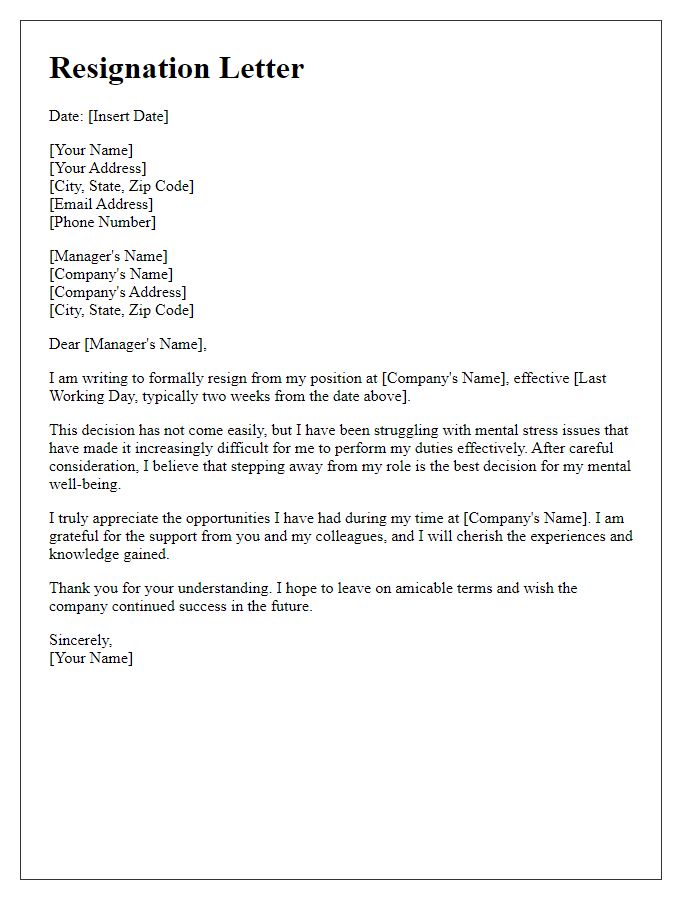
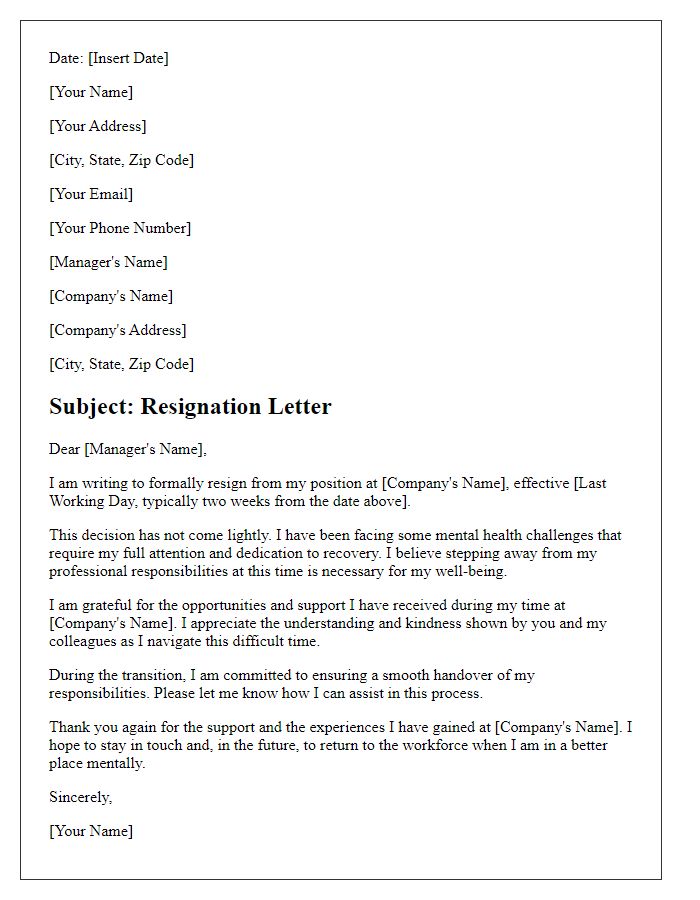


Comments